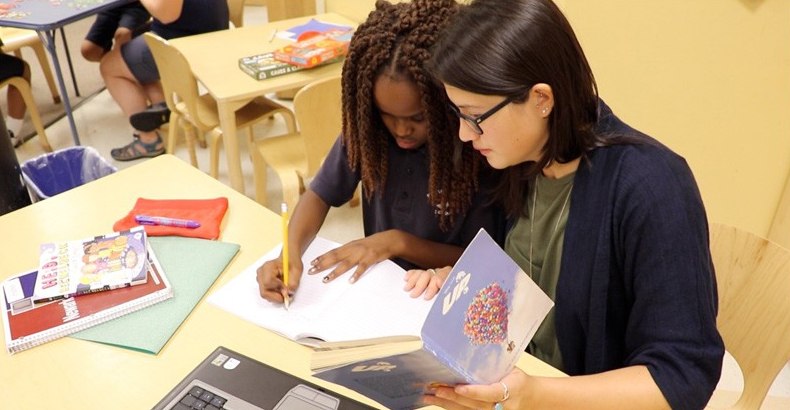School of Education
Improving Student Learning

Gates Foundation funds help UD researchers work to aid underrepresented students
Shaping minds is a big responsibility, one that teachers in classrooms across America embrace every day.
With the introduction of Common Core or state standards in math, science and English, teachers are tasked with delivering rigorous material in ways that students can easily understand, retain and explain.
This can be difficult when teaching students from traditionally marginalized groups who have not been exposed to this level of rigor. And when standards—and professional development resources—vary so widely across the nation, sometimes even between schools in the same district.
Now, with a $1.5 million grant from the Bill and Melinda Gates Foundation, University of Delaware Professor Laura Desimone and a team of thought leaders in English language arts, mathematics and education policy are working to improve the quality of instruction for the nation’s underrepresented middle and high school students.
Desimone, director of research in UD’s College of Education and Human Development, and her team will work with 12 professional learning partnerships across the country as they design instruction that is better suited to student bodies that are mostly black or Latinx. Each partnership team is composed of a school district serving at least 50% minority students and a professional development team with expertise in supporting teachers to improve curriculum-aligned instruction.
As the research arm of the project, Desimone and her team are leading work to study the implementation and success of the 12 partnerships, both individually and as a whole. The UD-led research team aims to provide useful feedback to the partnership teams as they refine and improve their efforts to support teachers.
According to Desimone, better instruction on rigorous content, combined with classroom approaches that are respectful and value a student’s own experiences and perspectives, can make learning more meaningful and relevant for students.
“When we ask teachers to use more rigorous content in their classrooms, we have to provide them with support and resources for doing this and for doing it in a way that meets the needs of all the students in their classroom,” Desimone said. “Students come to the classroom with different backgrounds, ideas and ways of looking at the world. We need to support teachers in developing culturally responsive practices that meet students where they are, in ways that respect and value their cultural differences.”
Collaborators on the project include co-principal investigator (PI) and project co-director Kirsten Hill, a UD research affiliate who leads her own evaluation firm in New Orleans, Louisiana; co-PIs Horatio Blackman, a researcher with UD’s Center for Research in Education and Social Policy, who specializes in school improvement and school climate; Mellissa Gordon, CEHD associate professor and expert in adolescent development; and Joshua Wilson, an assistant professor in the School of Education who studies literacy. Others involved in the project include Erica Litke, assistant professor in the School of Education, who has a background in teaching and learning in mathematics, and graduate students Hillary May and Justine Yego. Henry May, director of UD’s Center for Research in Education and Social Policy and Andrew Porter, University of Pennsylvania professor emeritus, serve as consultants on the project.
Article by Karen B. Roberts.
Photo by Jessica Eastburn.



